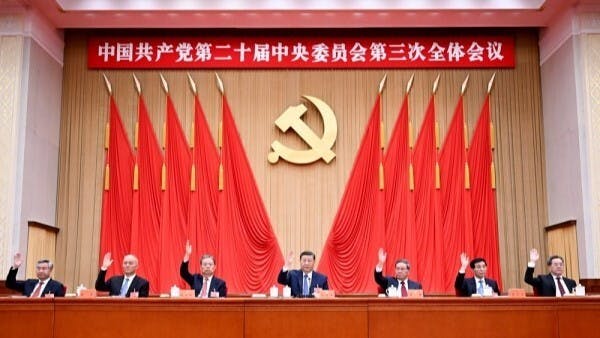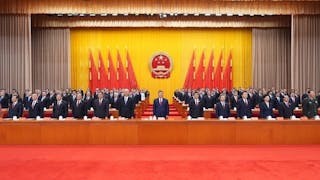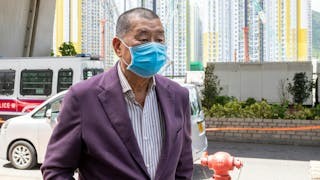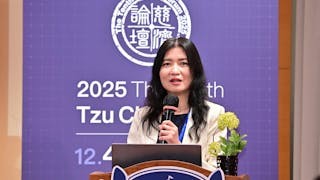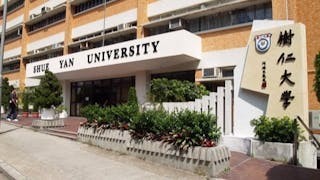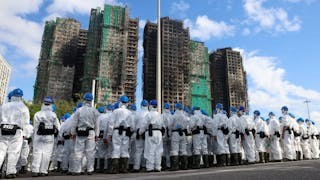為期4日的中國共產黨第二十屆中央委員會第三次全體會議於7月18日結束,通過了一系列全面的改革方案,並指定2029年為完成這些改革任務的時間表,2035年為全面深化改革的目標。實現「高水平社會主義市場經濟體制」。整體而言,持續穩定改革經濟和社會,是本屆三中全會的主題。
全會通過了《中共中央關於進一步全面深化改革、推進中國式現代化的決定》(下稱《決定》),目標是繼續完善和發展中國特色社會主義制度,推進國家治理體系和治理能力現代化,建設社會主義現代化強國。
全面深化改革 推進中國式現代化
從經濟上看,《決定》提到要構建全國統一大市場,完善市場經濟基礎制度,健全推動經濟高質量發展體制機制,深化金融/貨幣和稅制改革,切實搞好「十五五」(2026-2030)規劃前期謀劃工作。
顯然,社會主義市場經濟及其持久性改革仍然是中國經濟現代化的支柱,重點是加速發展新質生產力及其上層建築(價值觀和制度)層面的相關改革。
在風險管理方面,《決定》強調要落實好防範化解房地產、地方政府債務、中小金融機構等重點領域風險的各項舉措。此外,還要要加強輿論引導,有效防範化解意識形態風險。
這句話的意思是,中央政府從恒大集團未能交付房地產項目而引發一些公眾不滿的事件中汲取了教訓。恒大集團的破產提高了中央和地方當局的危機意識,他們最近收緊了房地產領域的審計工作。
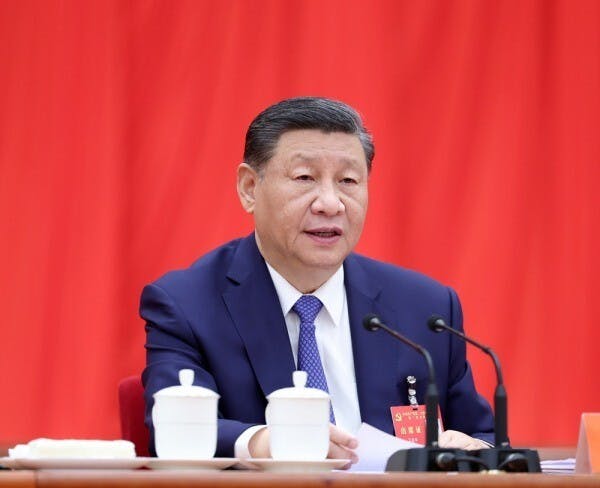
在對外開放方面,《決定》提出,要穩步擴大制度型開放,深化外貿體制改革,深化外商投資和對外投資管理體制改革,最佳化區域開放布局,完善推進高品質共建一帶一路機制。
政治上,《決定》提出要健全和完善基本政治制度。這意味着全國和地方人大、政協會議作為重要的監督機制,將繼續進行改革。
文化方面,《決定》提出增強文化自信,要完善意識形態工作責任制、優化文化服務與文化產品供給機制,健全網路綜合治理體系,建構更有效力的國際傳播體系。毫無疑問,堅持不懈的意識形態和宣傳工作,仍然是中國改革的基石。
在改善民生方面,《決定》指出要完善收入分配制度、完善就業優先政策、深化醫療衛生體制改革。顯然,透過改善民生來穩定社會,是三中全會決定的關鍵。
國家安全是中國改革的一個突出趨勢
《決定》也明確完善維護國家安全體制機制、完善公共安全治理機制,健全社會治理體系,以及完善涉外國家安全機制。分析來看,強調國家安全,其實是2012年以來中國改革的一個突出趨勢。
在對外關係方面,《決定》指出,中國要求參與引領全球治理體系改革與建設,堅決維護國家主權、安全、發展利益。
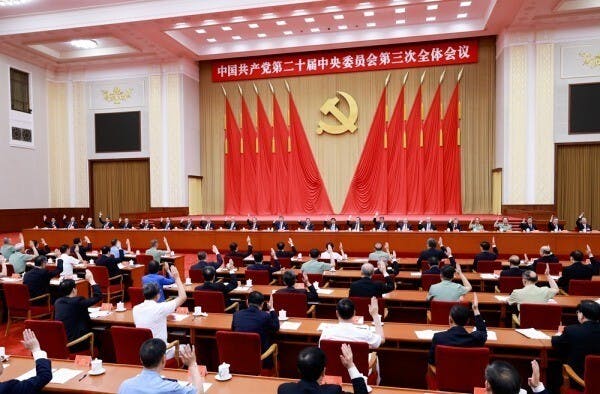
《決定》的其他重要方面,包括國資國企改革的必要性(為能源和鐵路等行業引入更多競爭);支持民間企業參與國家大型基礎建設項目;完善電力市場、數字化市場、數據和城鄉土地利用等高品質市場的標準化和一體化。同時,實體經濟和數字經濟在基建現代化和高品質發展過程中還需要進一步融合。地方財政困難將透過賦予地方擴大稅收自主權、提高中央在地方支出比重等方式解決。改善農村戶籍戶和低收入貧困戶的公共服務,包括對食品生產和流通的監管並給予適當補貼。
探索加強新經濟組織、新社會組織、新就業群體黨的建設有效途徑。最後,堅持反貪腐工作,同時加強監督體系,防止濫用反貪腐起訴程序。
分析地看,從為社會主義經濟引入更多競爭要素,到重振支持政府和社會就業的社會組織活力,中國共產黨在各方面的改革中都發揮着領導作用。
三中全會重點 在於強政勵治
基本上,強政勵治是中共二十屆三中全會的重點。
有趣的是,三中全會的《決定》不僅務實,而且坦率,承認經濟需求面依然疲軟。
在人事管理方面,免去外交部前部長秦剛中央委員會委員職務,比起那些被開除出黨的前國防部長李尚福、火箭軍前司令員李玉超和火箭軍前參謀長孫金明這些腐敗將領落馬較為體面。
這對港澳的影響是顯而易見的:雖然香港和澳門在一國兩制下實行資本主義,但兩座城市都將堅持在經濟、社會、文化和民生方面的各種改革。如果社會穩定和經濟繁榮是內地持久性改革的兩大重點,那麼香港和澳門這兩個特區的政府自然會在這兩個關鍵方面作出更多貢獻。
總而言之,二十屆三中全會決定繼續把中國建設成為一個強國,強調繼續改善經濟、完善制度、穩定社會政治、繁榮經濟、改善人民生活、堅持社會主義市場現代化和中國共產黨的領導。
China’s Third Plenum and its political implications
The four-day Third Plenum of the Central Committee of the Communist Party of China (CPC) ended on July 18, delineating a comprehensive set of reforms and designating the year 2029 as the timeline of completing these reforms and the year 2035 as a target of achieving “high-quality socialist market economic system.” Overall, stability amid persistent economic and social reforms are the main themes of the Third Plenum.
The Plenum approved an important decision on the Central Committee’s further comprehensive and deepening reforms and on the promotion of Chinese-style modernization. The objectives are to improve the basic system, to realize the modernization of the national governing system and capability, and to achieve a strong socialist modernized nation.
Economically speaking, the decision mentions the need to construct a unified big market in China, improve the market economy, reform the new high-quality productive system, deepen financial/monetary and tax reforms, and lay the foundation of the 15th five-year plan.
Clearly, the socialist market economy and its permanent reforms remain the pillar of China’s economic modernization with an emphasis on the acceleration of new productive forces and on their related reforms at the level of superstructure (values and institutions).
In terms of risks management, the decision emphasizes the necessity of preventing and solving the debts of the land and property sectors, the local government and small and medium enterprises. Moreover, there is a need of leading public opinion and preventing and solving the risks of ideological development.
What these phrases implied was that the central authorities learnt a lesson from the failure of the Evergrande Group to deliver property projects that led to some public discontent. The conglomerate’s fiasco heightened the crisis consciousness of the central and local authorities who have recently tightened the process of auditing work in the land and property sectors.
With regard to opening the door to the outside world, the decision mentions the need to expand the openness of the economic system in a stable manner, to deepen reforms in external trade, and to persist in managerial reforms to attract foreign investment and improve China’s investment in other countries. In this way, a high-quality Belt and Road system will be established.
Politically, the decision vows to improve and perfect the basic political system, meaning that the national and local legislatures as well as the people’s consultative conferences will continue to be reformed as crucial supervisory mechanisms.
Culturally, the decision emphasizes cultural confidence, pointing to the need for a responsibility system in ideological work, a healthy governing system for cultural development and an effective international media system.
Clearly, persistent ideological and propaganda work remain the cornerstone of reforms in China.
In terms of livelihood improvement, the decision points to the improvements of the distribution system, the policy priority of providing employment and the necessity of deepening medical care and health system reforms.
Obviously, social stability through the betterment of the people’s livelihood is the linchpin of the Third Plenum’s decision.
The decision also elucidates the importance of improving the national security system, the governing mechanism for public safety, the social governance system and the national security mechanism that deals with external relations.
Securitization has actually remained a prominent trend of Chinese reforms since 2012, analytically speaking.
In the area of external relations, the decision says that China participates in and takes the leadership of the global governance system, reform and construction while resolutely protecting national sovereignty, security and developmental interest.
Other crucial aspects of the decision includes the need for reform of state-owned enterprises (injecting more competition into the energy and railroad sectors); the support of civilian enterprises to partake in the nation’s large infrastructure projects; the standardization and integration of high-quality markets in electricity, digital data and rural-urban land use. Moreover, the entity economy and the digital economy have to be integrated further in the process of infrastructure modernization and high-quality development. The local government’s financial difficulties will be tackled through the process of giving the localities more autonomy in expanding their tax revenues and increasing the central government’s proportion of local-level expenditures. Public services will be improved for registered households and low-income and poor households in rural areas, including the supervision of the manufacturing and distribution of food products with proper subsidies.
New economic and social groups will be explored to assist employment with an emphasis on party leadership. Finally, anti-corruption work persists while strengthening a monitoring system to prevent abusing the prosecution process of anti-corruption.
Analytically, the CPC plays the leadership role in all aspects of reforms, ranging from the injection of more competitive elements in the socialist economy to the re-invigoration of social organizations supportive of the government and societal employment.
Basically, strong governance is the focal point of the Third Plenum.
Interestingly, its decision is not only pragmatic but also frank, acknowledging that the demand side of the economy remains weak.
In terms of personnel management, ex-foreign minister Qin Gang resigned from his position in the Central Committee – a more graceful exit than those corrupt military commanders such as former minister Li Shangfu and former rocket force chief Sun Jinming who were dismissed from the party.
The implications for Hong Kong and Macau are obvious: while Hong Kong and Macau practise capitalism under the “one country, two systems,” both cities are expected to persist in all kinds of reforms in the economic, social, cultural and livelihood aspects. If social stability and economic prosperity are the twin foci of permanent reforms in the mainland, the ruling authorities in both Hong Kong and Macau are naturally expected to deliver more in these two crucial dimensions.
In conclusion, the decision of the Third Plenum continues to build China up as a strong nation punctuated by the emphases on persistent economic reforms, systemic improvements, socio-political stability, economic prosperity, the betterment of the people’s livelihood, the permanence of socialist market modernization, and the leadership of the CPC.
原刊於澳門新聞通訊社(MNA)網站,本社獲作者授權轉載。原文網址:https://www.macaubusiness.com/opinion-chinas-third-plenum-and-its-political-implications/



